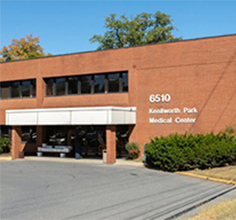
Detoxification refers to the physiological or medicinal removal of toxic substances from a living organism, including the human body. While detox diets and cleanses are promoted as a way to rid the body of impurities scientific evidence supporting the effectiveness of many popular detox methods is often limited. When it comes to sugar, the body doesn't undergo a specific detox process for sugar in the way the term is often used in popular media or marketing. The body's ability to handle sugars is primarily governed by its normal physiological functions.
In this brief article brought to you by Southern Maryand Medical Group, we touch on how the body processes and manages sugar, and we’ll share some tips on how you can support the body in its endeavor.
When you consume sugars, whether they are from natural sources like fruits or added sugars in processed foods, the digestive system breaks them down into simpler forms. For example, complex carbohydrates are broken down into glucose, a type of sugar that serves as a primary energy source for the body.
The small intestine absorbs the broken-down sugars into the bloodstream. From there, they are transported to cells throughout the body to be used for energy.
The hormone insulin, produced by the pancreas, plays a crucial role in regulating blood sugar levels. When blood sugar levels rise after eating, insulin helps cells take up glucose from the bloodstream, allowing it to be used for energy or stored for future use.
Cells use glucose for energy. However, excess glucose can be stored in the liver and muscles as glycogen. When those storage areas are full, excess glucose may be converted into fat for long-term storage.
Elimination & Excretion
Any unused or unneeded sugars are eventually excreted by the body. The kidneys filter the blood, and excess sugars are removed in the urine.
The body is a marvel, but it can use a hand – no pun intended. Here are some general tips that can help you support your body's ability to manage sugars effectively:
It's important to note that individual nutritional needs can vary, and these guidelines should be adapted based on personal health conditions, preferences, and lifestyle. Consulting with a healthcare professional or a registered dietitian can provide personalized guidance tailored to specific health goals and concerns.
If you are looking for a licensed primary care physician, then call Southern Maryland Medical Group to schedule an appointment. Many of our primary care doctors even accept walk-in appointments.
Southern Maryland Medical Group has 3 convenient locations to provide professional medical care services in the Southern Maryland area. Call or schedule an appointment with one of our locations to get medical care help.

5801 Allentown Road, Suite 400 Camp Spring, MD 20746
Phone: 301-868- 0150
Billing Inquiries: 301-552-1270
Fax: 301-868-0243

7500 Greenway Center, Dr #1200 Greenbelt, MD 20770
Phone: 301-486-7580
Billing Inquiries: 301-552-1270
Fax: 301-486-7581

6510 Kenilworth Ave, Ste 1400, Riverdale MD 20737
Phone: 301-618-0771
Billing Inquiries: 301-552-1270
Fax: 301-618-0772